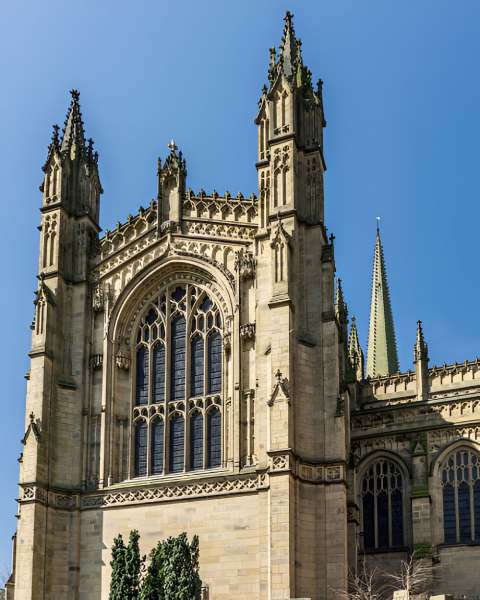
What to Do When Someone Passes – City of Leeds Funeral Services
Losing a loved one is an incredibly challenging experience, and understanding the necessary steps can help ease the burden of making arrangements. As of 9th September 2024, new UK regulations regarding death certification have been introduced. This guide offers a step-by-step overview of what to do when someone passes away in Leeds and its surrounding areas, ensuring that all legal, practical, and emotional aspects are handled with care.

3. Understanding the Death Certification Process
With the new 2024 regulations, every death must be reviewed by a Medical Examiner before then death certificate is issued.
How the Process Works:
Medical Examiner Review
The Medical Examiner will check medical records and consult with the attending doctor.
Doctor or Coroner Decision
The Medical Examiner will decide if the attending doctor can sign the death certificate or if the coroner must be involved.
Issuance of Death Certificate
If no further investigation is required, the certificate will be issued.
4. Registering the Death
By law, the death must be registered within five days at the register office in the district where the death occurred.
Who Can Register the Death?
- A relative of the deceased.
- A person present at the time of death.
- The person responsible for funeral arrangements (not the funeral director).
Documents & Information Needed:
- Medical Certificate of Cause of Death (MCCD) (sent electronically if a coroner is involved).
- Full name, date of birth, and last address of the deceased.
- Occupation and marital status.
- Name and details of the deceased’s spouse or civil partner (if applicable).
- Information about any state pension or benefits.
Registrar Offices in Leeds:
Leeds Register Office - Merrion House
- Address: Merrion House, Merrion Way, Leeds, LS2 8BB.
- Phone: 0113 222 4408.
- Website: Leeds Register Office.
Other Register Offices:
- Armley, Dewsbury Road (Beeston), Moor Allerton, Morley, Rothwell, St George’s (Middleton), Seacroft, Yeadon.
- Appointments can be booked online or by contacting the main register office
6. Handling Legal and Financial Matters
Following the funeral, you will need to address legal and financial affairs, including:
Notifying institutions
Contact banks, insurance companies, pension providers, utility companies, and other relevant organisations.
Wills & Probate
If the deceased had a will, the executor will need to apply for probate. If no will exists, the estate is handled under intestacy laws.
Tell Us Once Service
This government service notifies HMRC, DVLA, DWP, and other agencies in one step.
7. Coroner Involvement
A coroner may investigate the death if
- The cause of death is unknown.
- The deceased was not seen by a doctor in the last 14 days.
- The death was sudden, violent, or unexplained.
- The death occurred during surgery or medical treatment.
If the coroner orders a post-mortem, the death cannot be registered until the results are confirmed. If an inquest is required, an interim death certificate will be issued.
Coroners' Offices:
Leeds Coroner's Office:
- Address: Symons House, Belgrave Street, Leeds, LS2 8DD
- Phone: 0113 378 9687
- Website: Leeds City Council - Coroner
Wakefield Coroner's Office:
- Address: 71 Northgate, Wakefield, WF1 3BS
- Phone: 01924 302180
- Website: Wakefield Council - Coroner
Bereavement Support Services:
Grieving is a personal journey, and support is available to help you navigate this challenging time. Here are some local resources:
Samaritans
- Phone: 116 123
- Website: Samaritans
Mind Mental Health Support
- Phone: 0300 123 3393
- Website: Mind
Hope Bereavement Support
- Website: Hope Bereavement Support
Leeds Cruse Bereavement Support
- Phone: 0808 808 1677
- Website: Leeds Cruse Bereavement Support
Leeds Teaching Hospitals Bereavement Support
- Phone: 07785 694 129
- Website: Leeds Teaching Hospitals - Bereavement Support
Local Hospitals (within 30-mile radius of Leeds)
Wakefield Coroner's Office
- Address: Great George Street, Leeds, LS1 3EX
- Phone: 0113 243 2799
St. James's University Hospital
- Address:Beckett Street, Leeds, LS9 7TF
- Phone: 0113 243 3144
Pinderfields Hospital
- Address: Aberford Road, Wakefield, WF1 4DG
- Phone: 01924 541000
Bradford Royal Infirmary
- Address: Duckworth Lane, Bradford, BD9 6RJ
- Phone: 01274 542200
Harrogate District Hospital
- Address: Lancaster Park Road, Harrogate, HG2 7SX
- Phone: 01423 885959
Additional Contacts
Leeds Register Office:
- Website: Leeds City Council - Register a Death
- Phone: 0113 222 4408
Medical Examiner Service Leeds
At Direct Cremation Leeds Funeral Services, we are here to provide compassionate support and guidance as you navigate the complexities of loss. Please do not hesitate to reach out to us for assistance during this difficult time


